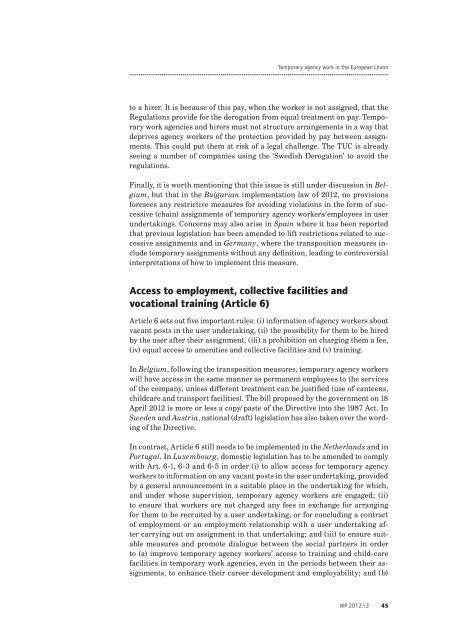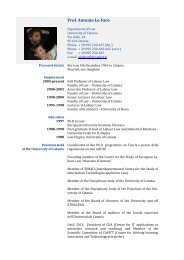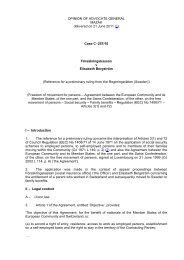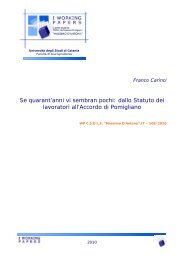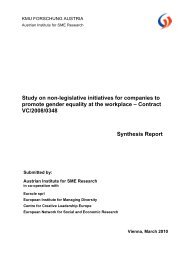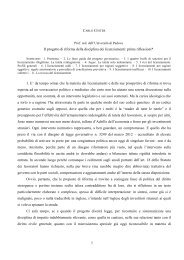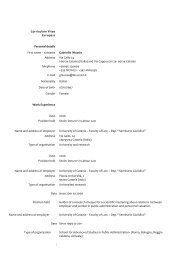Full text - European Trade Union Institute (ETUI)
Full text - European Trade Union Institute (ETUI)
Full text - European Trade Union Institute (ETUI)
Create successful ePaper yourself
Turn your PDF publications into a flip-book with our unique Google optimized e-Paper software.
Temporary agency work in the <strong>European</strong> <strong>Union</strong><br />
to a hirer. It is because of this pay, when the worker is not assigned, that the<br />
Regulations provide for the derogation from equal treatment on pay. Temporary<br />
work agencies and hirers must not structure arrangements in a way that<br />
deprives agency workers of the protection provided by pay between assignments.<br />
This could put them at risk of a legal challenge. The TUC is already<br />
seeing a number of companies using the ‘Swedish Derogation’ to avoid the<br />
regulations.<br />
Finally, it is worth mentioning that this issue is still under discussion in Belgium,<br />
but that in the Bulgarian implementation law of 2012, no provisions<br />
foresees any restrictive measures for avoiding violations in the form of successive<br />
(chain) assignments of temporary agency workers/employees in user<br />
undertakings. Concerns may also arise in Spain where it has been reported<br />
that previous legislation has been amended to lift restrictions related to successive<br />
assignments and in Germany, where the transposition measures include<br />
temporary assignments without any definition, leading to controversial<br />
interpretations of how to implement this measure.<br />
Access to employment, collective facilities and<br />
vocational training (Article 6)<br />
Article 6 sets out five important rules: (i) information of agency workers about<br />
vacant posts in the user undertaking, (ii) the possibility for them to be hired<br />
by the user after their assignment, (iii) a prohibition on charging them a fee,<br />
(iv) equal access to amenities and collective facilities and (v) training.<br />
In Belgium, following the transposition measures, temporary agency workers<br />
will have access in the same manner as permanent employees to the services<br />
of the company, unless different treatment can be justified (use of canteens,<br />
childcare and transport facilities). The bill proposed by the government on 18<br />
April 2012 is more or less a copy/paste of the Directive into the 1987 Act. In<br />
Sweden and Austria, national (draft) legislation has also taken over the wording<br />
of the Directive.<br />
In contrast, Article 6 still needs to be implemented in the Netherlands and in<br />
Portugal. In Luxembourg, domestic legislation has to be amended to comply<br />
with Art. 6-1, 6-3 and 6-5 in order (i) to allow access for temporary agency<br />
workers to information on any vacant posts in the user undertaking, provided<br />
by a general announcement in a suitable place in the undertaking for which,<br />
and under whose supervision, temporary agency workers are engaged; (ii)<br />
to ensure that workers are not charged any fees in exchange for arranging<br />
for them to be recruited by a user undertaking, or for concluding a contract<br />
of employment or an employment relationship with a user undertaking after<br />
carrying out an assignment in that undertaking; and (iii) to ensure suitable<br />
measures and promote dialogue between the social partners in order<br />
to (a) improve temporary agency workers’ access to training and child-care<br />
facilities in temporary work agencies, even in the periods between their assignments,<br />
to enhance their career development and employability; and (b)<br />
WP 2012.13 45


